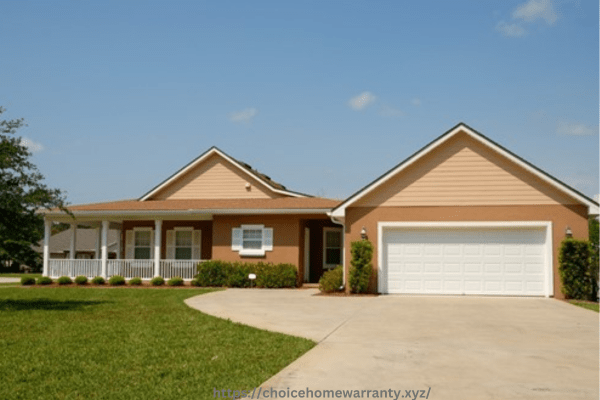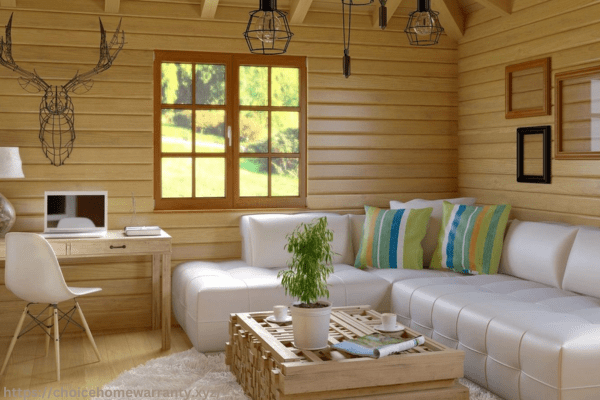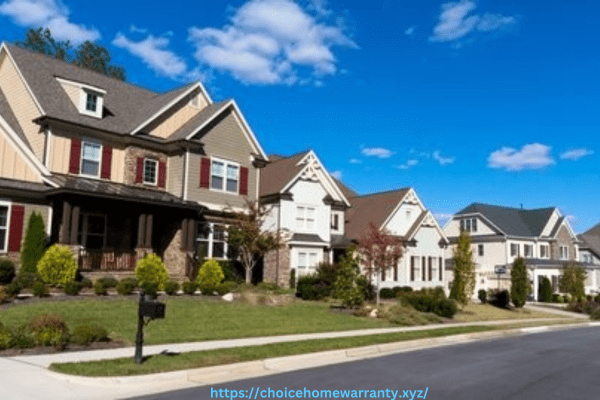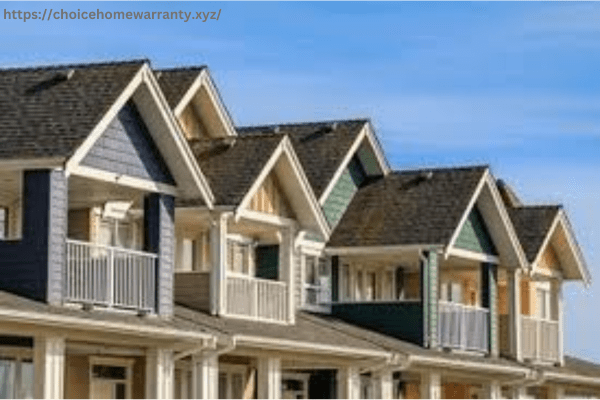Embarking on the journey of buying a hud home could be one of the most rewarding financial decisions you make. Surprisingly, these government-backed homes provide an affordable path to homeownership that often flies under the radar. They are frequently priced significantly below market value, offering substantial savings that make them ideal for first-time buyers or budget-conscious investors.
However, procuring a HUD home is not your traditional buying process; it often involves navigating complex government procedures and stringent conditions. The property must meet strict federal standards, and there are specific requirements concerning financing methods. While these caveats can be intimidating, understanding them can unlock promising real estate opportunities and serve as a victorious step towards eight-figure wealth!
What is a HUD Home?
The Department of Housing and Urban Development (HUD) is a federal government agency that concentrates on providing more affordable housing and rental options in underserved communities around the nation. A key component of HUD’s purpose is to provide fair access to rental or home ownership possibilities through the Office of Fair Housing and Equal Opportunity. This office is responsible for enforcing the Fair Housing Act, which prohibits discrimination in housing based on race, religion, sex, nationality, marital status, or disability.
Landlords, real estate firms, municipal governments, banks and other lenders, and homeowners insurance providers are all covered by this statute. local governments, banks other lenders, and homeowners insurance companies. Therefore, purchasing a HUD home ensures compliance with these regulations, providing a fair and inclusive housing market for all.
What does “HUD home” mean?
A HUD house is not just any old property; rather, it offers prospective purchasers a chance. A house that has gone through foreclosure and is now being sold by the U.S. Department of Housing and Urban Development (HUD) is called a “HUD home.” Typically, FHA mortgages are used to fund these properties; if the borrower fails on the loan, the property will go into foreclosure. Therefore, this makes it accessible for prospective buyers looking into purchasing a HUD home.
How do you qualify for a HUD home?
Qualifying for a HUD home involves several stipulations. First and foremost, you have to be an owner-occupant, which means you have to plan to live in the house for a minimum of a year. It’s also critical that, throughout the previous two years, you have not purchased any more HUD homes.
If you want to finance the purchase with an FHA mortgage or another kind of loan, your income, credit score, and existing commitments will be considered throughout the qualification process. It is noteworthy, nonetheless, that investors are subject to various regulations; they must bid after a 30-day waiting period. This rule ensures residential buyers get a fair opportunity to purchase a HUD home.
How do HUD homes work?
HUD homes operate differently from conventional home purchases. Rather than purchasing directly from the homeowner, you are dealing with HUD (Housing and Urban Development), the entity responsible for foreclosing on the property. Unlike courthouse-step cash purchases, buying a HUD home involves a formal bidding process. This unique process allows potential buyers to secure pre-approval for a mortgage before making an offer, streamlining the acquisition of the property.
How do you buy a HUD home?
Buying a HUD home involves a specific process that begins with locating available properties through the HUD’s search tool. Given that these homes are sold in their existing condition, it is crucial to order an inspection to identify any significant issues that may be present. If you choose to move forward after the inspection, you’ll need to place an official bid using a HUD-registered selling broker. It is recommended to obtain pre-approval for a mortgage before placing your bid. Once the bidding period concludes, HUD sells the home to the qualified buyer offering the highest bid.
How much do HUD homes cost?
HUD homes are appraised and priced close to their fair market value, determined by the marketing and management contractor. Prices may be further reduced if inspections reveal significant problems. According to a 2015 study, these homes spend fewer than ten days on the market and typically sell for more than 95 percent of their list prices.
Can HUD help me buy a house?
The Department of Housing and Urban Development (HUD) may undoubtedly help you with the purchase of a house. The Good Neighbour Next Door scheme, which offers qualified people (such as teachers, firefighters, and EMTs) a 50% discount on HUD-listed properties, is one of their many charity efforts. Additionally, HUD may cover up to 3 percent of the home’s purchase price towards closing costs for other buyers if it is requested on line 5 of the HUD-9548 form. Therefore, buying a HUD home can be made significantly more accessible with these programs.
How To Get a HUD Home
Getting a HUD home involves a specific process. These houses are owned by the US Department of Housing and Urban Development, or HUD, which foreclosed on residences with Federal Housing Administration-insured loans.
You must enter an auction held by the department to put in your bid to purchase a HUD house. It’s crucial to remember that before investors are permitted to bid, precedence is granted to owner-occupants who intend to reside in the home for at least a year. Potential purchasers should perform due diligence before placing any offers, which includes examining the house’s condition and estimating the possible expenses of repairs and renovations.
Understanding HUD Home Purchase: No Income Requirement
You must comprehend the HUD home-buying procedure before you begin. It’s crucial to remember that this kind of transaction does not demand proof of income. HUD operates on a priority order bid process to ensure fairness in the selection of buyers. To participate in this process, one must hire a HUD-registered real estate agent or broker. This makes buying a HUD home accessible for many potential homeowners, regardless of their income bracket.
Get Preapproved for a Mortgage
The initial step in your journey to buying a HUD home is getting preapproved for a mortgage. This critical stage not only exhibits your dedication as a sincere buyer but also assures HUD that you have the necessary financial means to finalize the deal.
Consult a HUD Housing Counselor
It might be helpful to speak with a housing counselor who has been approved by HUD if you are thinking about purchasing a HUD house. These experts are qualified to offer objective counsel that is specially catered to your particular circumstance. They give pre-purchase counseling, which may offer insightful advice and direction all through the house-buying process. Their expertise can help you navigate the complexities of purchasing a HUD home and ensure that you make informed decisions.
Engage a HUD-Registered Real Estate Professional
If you’re considering buying a HUD home, it’s important to engage a HUD-Registered Real Estate Professional. This is a requirement mandated by HUD, ensuring that your bid is handled by a registered real estate agent or broker. To find an eligible professional, visit the HUD Homestore website and navigate to the ‘Broker Search’ section located in the gray toolbar. This will enable you to locate and engage with an agent who can efficiently guide you through the process of purchasing a HUD home.

Hunt for Your Ideal HUD Home
Begin your hunt for your ideal HUD home by utilizing the HUD Homestore website. This platform allows you to search for available properties according to various parameters such as location, type of home, and more. It is beneficial to familiarize yourself with the search process by exploring the ‘Help’ section on the website, making the experience of buying a HUD home smoother and more efficient.
Prioritize a Home Inspection
Prioritizing a home inspection is especially significant when buying a HUD home. Unlike ordinary property purchases, the Department of Housing and Urban Development (HUD) urges prospective purchasers to obtain a home inspection before making an offer.
This is because HUD homes are sold “as is,” which means the seller won’t perform any renovations or repairs before the sale. Therefore, having an understanding of the property’s condition beforehand becomes crucial to avoid unexpected expenses and complications down the line.
Bid Submission Process
Once you’ve identified the HUD home that you wish to purchase, the next step is for your agent to submit a bid online. This bid submission process is operational throughout the week, encompassing weekends and holidays, providing flexibility in terms of when you can submit your offer. Should your bid be accepted, you will receive a notification within a timeframe of two days. This streamlined process makes buying a HUD home an efficient and straightforward experience.
Closing the Deal
Upon acceptance of your bid when buying a HUD home, you will be provided with a settlement date, usually scheduled within a 30 to 60-day timeframe. It is crucial that during this period, you finalize all the necessary details regarding your mortgage financing and conclude the sale.
The process of purchasing HUD homes may also involve interaction with asset managers. These are private companies that play an integral role in managing the bidding and closing procedures associated with the purchase process.
Pros and Cons of Buying a HUD Home
Buying a home is an exhilarating venture, and for those seeking an affordable and non-traditional option, HUD homes appear as a unique opportunity. Nevertheless, it’s essential to comprehend the advantages and disadvantages that come along with purchasing a HUD home before plunging into this market.
The pros include affordability and potentially lower closing costs, while the cons may involve possible maintenance issues due to the property’s condition. Understanding these factors is critical in making an informed decision when considering buying a HUD home.

ThePros
1. Abundance of Options
One of the key advantages of buying a HUD home is the abundance of options available. Finding a suitable HUD home in the Columbus real estate market can be relatively easy due to its widespread availability in most areas.
This broad selection makes it incredibly convenient for potential buyers, as they can easily locate a property that aligns with both their preferences and budget. Therefore, buying a HUD home presents an appealing choice for many individuals looking to invest in real estate.
2. Geographic Specificity
One of the pros of buying a HUD foreclosure home is its geographic specificity. If you have your heart set on a particular area or neighborhood, you’ll likely be able to locate a HUD foreclosure home in that vicinity. Moreover, these homes often retain good condition despite their foreclosed status, serving as a potentially favorable purchase opportunity for prospective buyers who are looking for a great deal in their preferred location.
3. Escrow Benefits
The pros of buying a HUD home are numerous, one of the primary ones being the potential for escrow benefits. HUD homes can sometimes come with money in escrow, which significantly streamlines the process of conducting necessary repairs and replacements. This feature reduces the financial strain on new homeowners and allows them to focus on customizing their new space rather than worrying about costly fixes.
In addition to this, these properties may also qualify for specific programs that offer funding to rehabilitate properties. Such programs can greatly enhance the overall appeal of the property, making it even more attractive for prospective buyers.
4. Priority for Owner Occupancy
One of the key advantages of buying a HUD home is the priority given to owner-occupancy. Unlike traditional foreclosure or short sale scenarios, individuals who intend to live in the home they’re purchasing are given preferential treatment when bidding for HUD homes.
This policy is designed to provide a more affordable pathway toward homeownership for legitimate homebuyers. It allows them to avoid stiff competition from investors, thereby making it easier and more accessible for average individuals and families to own a home.
5. Financial Assistance
The advantages of buying a HUD home are significant, especially when it comes to financial assistance. HUD offers considerable help with closing costs and escrow fees, which is a beneficial perk for potential buyers. Up to 3% of closing costs may be covered for certain buyers, although this should ideally be negotiated during the bidding process.
Additionally, HUD may even take care of the escrow fee, potentially saving buyers as much as $900. This financial aid can make the prospect of purchasing a HUD home much more appealing and affordable.
TheCons
1. Price Discrepancies
While purchasing a HUD home can often be a worthwhile investment, it’s important to note some potential cons – one of the major ones being price discrepancies. Not all HUD homes are priced as fantastic bargains. In fact, due to mispricing by agents, some may fall outside the affordability range of most prospective buyers.
It is crucial therefore, when buying a HUD home, to conduct thorough due diligence with your buyers’ agent to ensure that the property represents a sound and financially viable investment.
2.” As Is” Sales
One major disadvantage, or con, of purchasing HUD foreclosure homes is that most are sold as is, meaning any necessary repairs are covered by escrow. Buyers should be aware that most of these properties do not come with any warranties for renovations beyond what is included in the escrow, even though negotiation is flexible. Thus, prospective homeowners should exercise caution and make sure they are completely informed of the property’s condition before purchasing a HUD house.
3. Potential Issues with Vacant Homes
The cons of purchasing vacant HUD homes could include potential issues and challenges that are not immediately evident. A long period of vacancy can cause additional harm to a property, such as the growth of mold or other structural issues brought on by carelessness.
This is particularly true if the property has been for sale without sufficient care for an extended length of time. Therefore, it is essential to carry out a thorough examination to thoroughly understand the state of the property before purchasing a HUD house. This will help identify any issues and prevent unforeseen problems after purchase.

Financing HUD Homes: Navigating the Options
Financing HUD Homes: Navigating the Options is a crucial aspect for prospective homebuyers interested in affordable housing opportunities. HUD homes, though they offer such opportunities, frequently necessitate financing assistance.
In this article, we’ll delve into the diverse financing avenues and programs specifically designed for purchasing a HUD home. Understanding these available options can significantly ease the financial burden of buying a HUD home and make the process more manageable.
Government Entities Financing HUD Homes
Government entities play a pivotal role in financing HUD (Housing and Urban Development) homes. Various financial assistance options are made available to prospective homeowners, including VA loans with zero down payment, USDA rural development loans meant for low-to-moderate income families in eligible rural areas, FHA loans that are government-insured mortgages with relaxed requirements, and conventional mortgages. These options provide significant help in the process of buying a HUD home, making it more accessible and affordable for many people.
Challenges with Conventional Mortgages
While buying a HUD home can be an attractive option, obtaining conventional mortgages for such properties often presents certain challenges. One of the primary issues is HUD’s policy against pre-closing repairs which might deter lenders.
This rule makes conventional loans harder to secure because lenders typically want assurance that any significant damages or issues with the property will be corrected before they commit their funds. Therefore, potential buyers may face difficulties in securing adequate financing when purchasing a HUD home using a conventional mortgage.
FHA 203(k) Program: A Lifeline for Repairs
The FHA 203(k) program is a lifeline for repairs, designed to rejuvenate homes that are in disrepair. This unique construction loan, which is backed by the FHA, encompasses a wide range of repair works from foundational fixes to kitchen remodeling. It is particularly beneficial for low-income homebuyers who are purchasing HUD homes as it helps them manage the costs associated with necessary renovations and improvements.
Considerations for Financing: A Reality Check
When delving into the complexities of financing for buying a HUD home, it’s crucial to approach the process with a sense of realism. This involves assessing your price range accurately, which can often be achieved by using online calculators as a helpful tool.
These platforms allow you to account for not only potential mortgage payments but also additional costs such as closing fees and other influencing factors that could impact your overall budget. Timely financing is another critical aspect to consider, as it can prevent the disappointment of losing out on your dream home due to financial delays or setbacks.
HUD-Specific Financing Programs: Tailored Solutions
HUD, or the Department of Housing and Urban Development, offers tailored solutions to homeownership with their specific financing programs. Among these is the Good Neighbor Next Door initiative which enables eligible professionals such as law enforcement officers, teachers, firefighters, and EMTs to purchase homes at a 50% discount.
Another significantly beneficial program is the $100 Down Program. Aimed at easing the financial burden of potential homeowners, this initiative allows individuals who qualify for FHA financing to buy a HUD home with a minimal down payment.
The Importance of Price Range: Lessons from the Past
The importance of price range in home-buying is a critical lesson learned from the past housing bust. Purchasing within a feasible price range is not just a question of affordability, but also a strategy to avoid potential financial pitfalls. While window shopping for homes can be an enjoyable experience, it’s crucial to secure financing promptly. This ensures that you do not lose out on your dream HUD home due to competition from other potential buyers who may have their finances in order quicker than you do.

FAQs About Buying a Hud Home
Can anyone buy a HUD home?
Yes, there’s no income requirement, making HUD homes accessible to a wide range of buyers.
Is it mandatory to hire a HUD-registered agent?
Yes, HUD mandates the use of registered agents for submitting bids.
Can I negotiate the price of a HUD home after inspection?
No, HUD homes are sold “as-is,” so negotiating the price or terms post-inspection isn’t feasible.
What happens if my bid is not accepted?
You can submit another bid until the property is sold. Bids are accepted any day of the week.
How long does it take to close on a HUD home?
Generally, the closing period is within 30 to 60 days after bid acceptance.
Can I get a conventional mortgage for any HUD home?
Conventional mortgages might pose challenges for homes needing repairs before closing. Explore FHA and specialized programs.
How quickly should I secure financing to avoid losing a home?
Timely financing is crucial. Secure approval before extensively house hunting to avoid losing your dream home.
Are there additional benefits to HUD-specific programs like Good Neighbor Next Door?
Yes, eligible professionals can enjoy a 50% discount on the list price, making homeownership more accessible.
